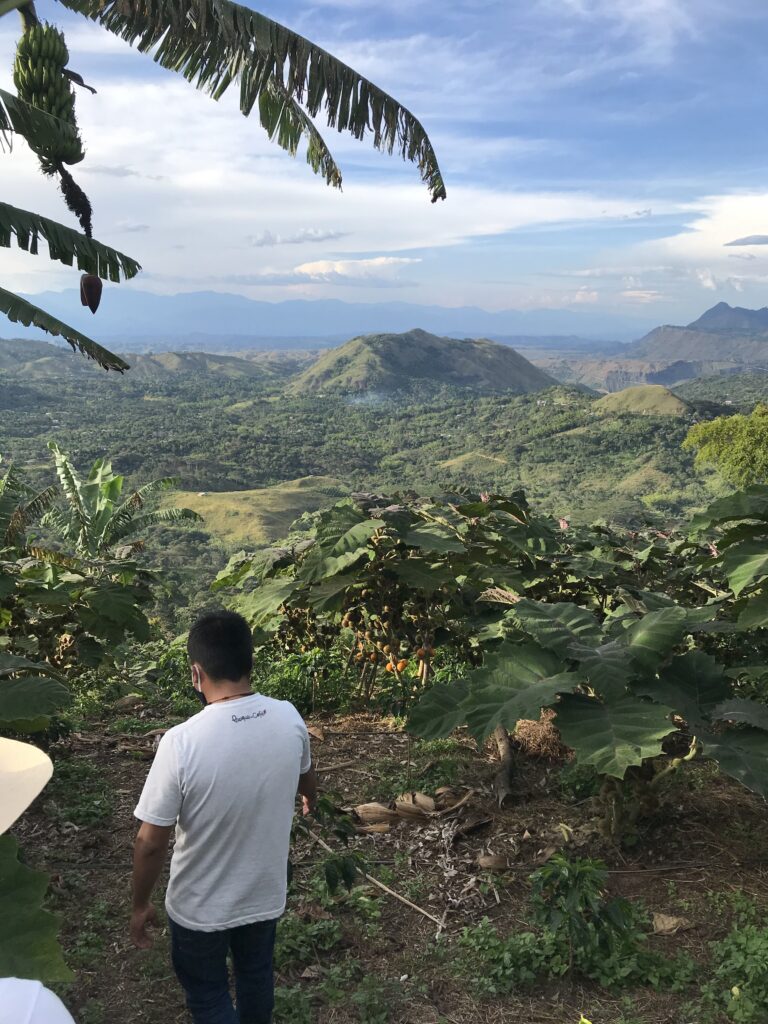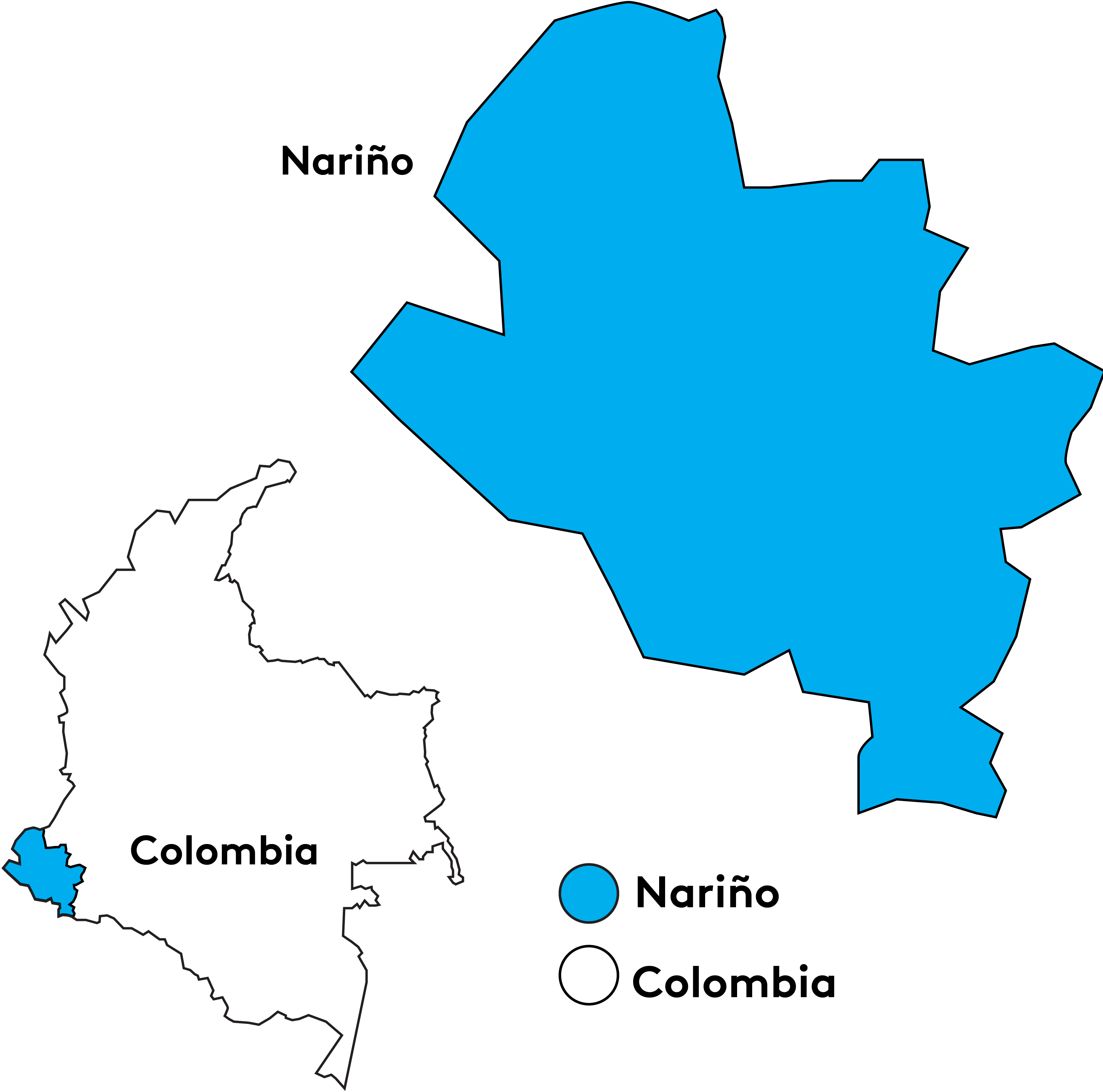Frank Rivas Torres is a coffee producer, Q Grader, and the primary manager of his family’s estate, Finca La Indonesia, in the Nariño department of Colombia. Frank and his siblings—Juan Angel, Gabriel, and Yorgeny, all coffee producers in their own right—cultivate coffee across the La Indonesia property, which was handed down from their grandfather, Marco Antonio Torres. The estate comprises several plots of land located just outside of La Pradera town in La Union municipality. The family’s history in coffee is long, with Marco Antonio being one of the first people to cultivate coffee in La Union more than 80 years ago. Frank and his siblings grow coffee alongside fruits and many different trees for shade at La Indonesia, with an emphasis on preserving soil quality and responsible water management.
La Indonesia sits 1750 meters above sea level on one of Nariño’s many mountain slopes. The farm has infrastructure to process Washed, Honey, and Natural coffees, as well as over 300 square meters of patios for drying coffee. Plantains, citrus, bananas, lulo, and corn are all cultivated alongside the coffee crop as well.
Managing the quality of the environment is a priority, as well as having a scientific approach to the quality of the coffee crop. The land is fertilized four times per year with the aim of preserving the organic matter in the soil. Coffee cherries are measured with a brixometer to determine the optimal harvest time, choosing the best sugar concentrations for each cultivated variety. The family has also planted several varieties at La Indonesia, including Pink Bourbon, Maragogype, Bourbon Sidra, and Yirgacheffe, seeking out unique profiles and emphasizing high quality coffee over large production volumes.
The Bourbon Sidra cultivar (sometimes called Sidra) was developed on a large research farm in Ecuador through funding from Nestlé. This variety was created by manually crossing Red Bourbon and Ethiopian heirloom varieties which carried Typica lineage. Unlike many modern hybrids, Sidra was developed with the sole aim of creating a high quality cup profile, highlighting both the heavy sweetness of Bourbon and the delicate florals that Typica is well-known for. In exchange for feedback, Nestlé offered the variety to farmers in the region, leading to a surge in its cultivation in Ecuador.
Frank received Bourbon Sidra seeds from a good friend with a connection to one of the best Bourbon Sidra producers in Ecuador, Murray Cooper. Frank planted the cultivar at La Indonesia in 2017, and harvested his first Sidra crop in 2021.
This lot underwent Washed processing. Harvested cherries are measured for their sugar content, ensuring a reading of 20 degrees Brix before processing. Cherries are sorted via floatation to remove defects. The washed cherries are put into food-grade plastic tanks and are dry fermented for 72 hours before being depulped. Pulped coffee is then wet fermented for 48 hours in a low oxygen atmosphere to enhance clarity of the flavors. The fermented coffee is then rinsed before being dried for 20 days in raised beds until reaching 12% humidity. The coffee is finished with sun drying before being milled and packaged for export.




